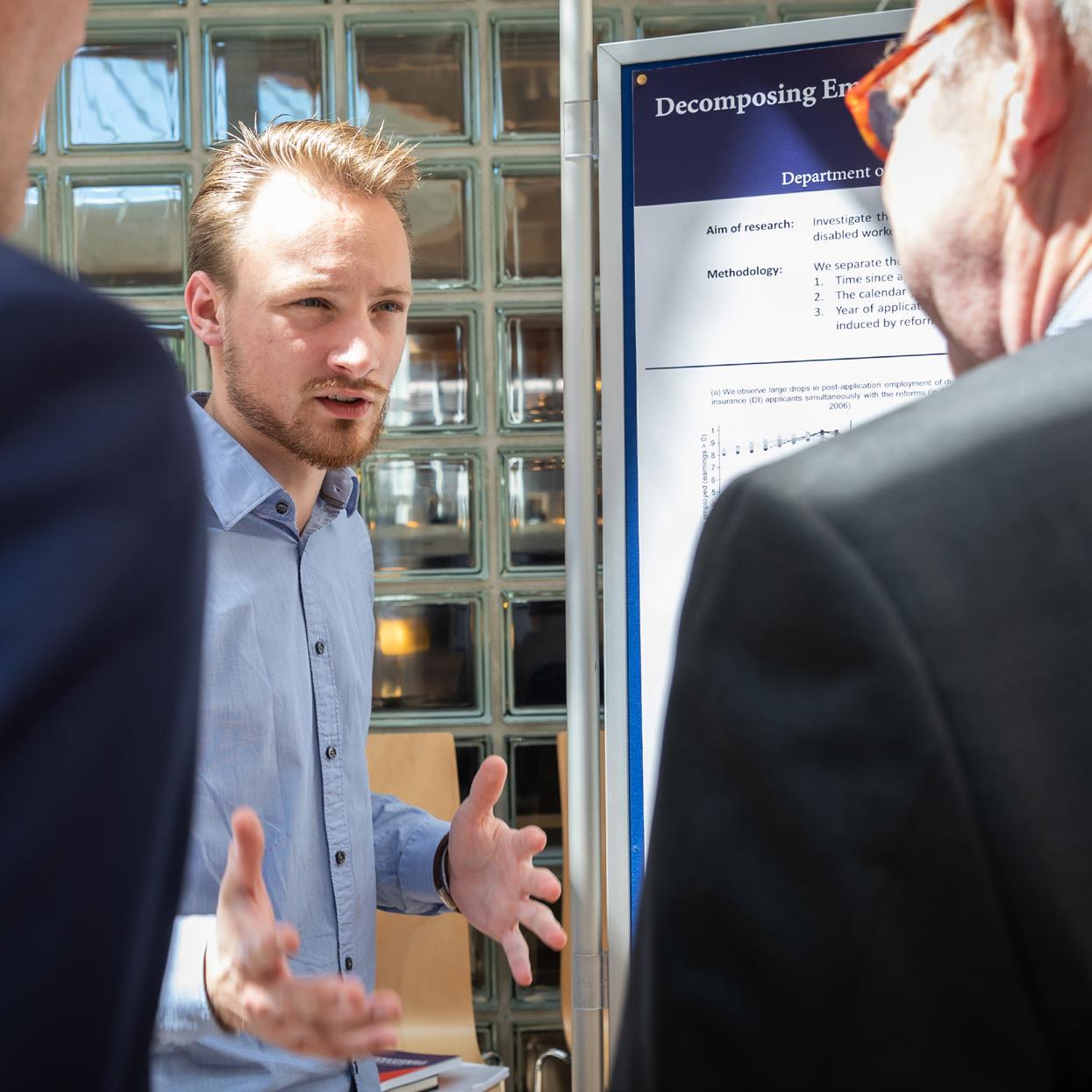
3 minute read
Law and Criminology in all their facets
from Impact with Law
Our degree programmes
Bachelor’s degree programmes w Rechtsgeleerdheid (Law)
Advertisement
- Economie
- International Business Law
- Entrepreneurship and Management w Notarieel recht (Notarial Law) w Fiscaal recht (Tax Law) w Criminologie (Criminology)
Master’s degree programmes (regular) w Arbeidsrecht (Labour Law) w Civiel recht (Civil Law) w Comparative Criminal Justice w Criminaliteit en rechtshandhaving (Crime and Criminal Justice) w Criminologie en Veiligheidsbeleid (Criminology and Security Policy) w Encyclopedie en filosofie van het recht (Jurisprudence and Philosophy of Law) w European Law w Financieel recht (Financial Law) w Fiscaal recht (Tax Law) w Forensische criminologie (Forensic Criminology) w Jeugdrecht (Child Law) w Law & Society w Notarieel recht (Notarial Law) w Ondernemingsrecht (Company
Law) w Public International Law w Rechtsgeleerdheid (Law) w Staats- en bestuursrecht (Constitutional and Administrative Law) w Straf- en strafprocesrecht (Criminal Law and Criminology)
Online courses
Online courses are freely available to everyone, ranging from ‘International Humanitarian Law’, ‘International Law in Action’ to ‘Rethinking International Tax Law’. All Leiden University online courses are listed on www. coursera.org/leiden
Post-academic training courses and conferences
Juridisch PAO (JPAO) of Leiden University organises and facilitates post-academic training courses for lawyers and professionals with a legal background or some other connection in their work to law. In addition, JPAO organises a broad range of events such as seminars, conferences and in-house training. www.paoleiden.nl/
Advanced master’s
These popular, intensive international master’s degree programmes are aimed at professionals working in the legal field. Leading experts lecture in English.
w Air and Space Law w European and International Business Law w European and International Human Rights Law w Global and European Labour Law w International Children’s Rights w International Civil and Commercial Law w International Criminal Law w International Dispute Settlement and Arbitration w Law and Digital Technologies w Law & Finance w Peace, Justice and Development w Public International Law
Summer schools
Together with our international partners we organise various summer schools on a broad range of topics. The aim of these summer schools is to update students and professionals in a short period of time on current issues, developments and research in the field of law and criminology.
Moot Court

Moot Court is a compulsory course in the second and third year of the bachelor’s degree programmes. Students learn how to develop legal arguments and plead in legal proceedings, as applicant and defendant. They are assessed on both content and presentation. To conclude the course, students put forward their oral arguments during proceedings in an authentic courtroom settinga truly special experience, making students even more enthusiastic and motivated. They learn how to apply academic theory in practice and develop their reasoning and presentation skills in a realistic setting.
Honours College Law
For ambitious, talented and motivated undergraduate students who are looking for an extra challenge besides their regular studies, we offer the Honours College Law.
De praktijk centraal
Professor Bart Krans: “Practicum, a course in our master’s programme Civiel recht, is a good example of a course where students can practise their skills. In just a few weeks, students have to write various pieces. For example, a note on a recent judgment, comments on a legislative proposal or an article in a civil law journal. Students usually find this course quite demanding, but also extremely useful. We often hear later from alumni how much the course has helped them in their career.
Students who follow the togapracticum are given assignments specifically aimed at a career as a court lawyer (the so-called togaberoepen). For example, we ask them to write a statement of appeal, advice on the chances of an appeal or an opinion for a client. These assignments are of course explained in class by teaching staff, but also by legal professionals. The togapracticum has an added dimension through the visits of guest lecturers such as judges, lawyers and advocate generals from the Supreme Court. This is a great way for students to learn about the topic of their assignments and about working in the judiciary. Fascinating and highly instructive, according to our students.”
Unique opportunities
Robert de Regt, undergraduate student International Business Law:
“During my first year at university I discovered that I found law really interesting, but I felt there was something missing. I wanted something with more depth and therefore opted for the Honours College Law. It has also helped me to complete the regular courses faster and with better grades. In addition, the Honours College Law offers the chance to look at other fields of study. You are in a class with really motivated students which leads to lively and interesting discussions. This also forms the basis for new friendships with other students. The Honours College Law has given me opportunities that bachelor’s students wouldn’t get so quickly otherwise. For example, I secured a research position on an international project and I participated in a really interesting Law Clinic on human rights’. ■







